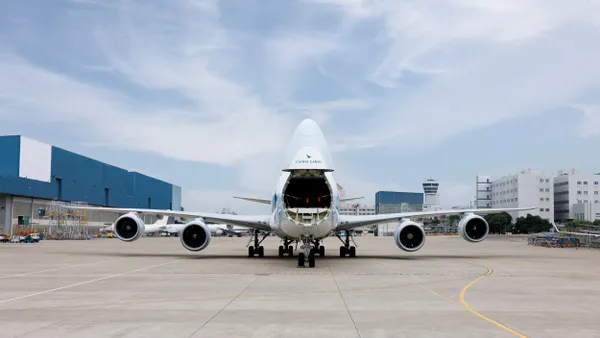Dive Brief:
- As the shipping industry consolidates through vessel sharing agreements and M&As, U.S. ports worry their container volumes and terminal agreements may suffer due to decreased competition, the Long Beach Press-Telegram reports.
- In just one example, Hanjin's recent bankruptcy has led it to sell its share of a terminal at the Port of Long Beach, and the Mediterranean Shipping Company — which already owns another terminal in the port — has emerged as the top bidder.
- The Press-Telegram notes most, if not all, contracts with shipping lines for terminal operations pre-date the alliances, which are set to enter force next year.
Dive Insight:
The shipping industry as a whole is restructuring into new actors and relationships, and no sector dealing with shipping lines will be left untouched. Already, the Panama Canal and the Suez Canal are positioning to ensure a rerouting of shipping routes will not affect their markets and regulators are watching closely for non-competitive practices.
But an industry-wide tightening of belts will present perhaps the greatest challenge to ports, which due to their role as a destination point had up to now, and except for Hanjin's aftereffects, remained largely unaffected by companies' struggles.
As the Ocean Alliance and THE Alliance reveal their combined shipping routes, it is becoming clear that the alliances are looking to transport as much capacity in as few vessels as possible — a large warning sign for smaller ports, which are rushing to upgrade.
Analysts predict these drives will lead a new type of contract to dominate the market, wherein ports ally with shipping alliances to become hubs and retain market share, similar to how airports operate with passenger airlines. This would theoretically reduce costs for both port operators and shipping lines, but ports are right to be concerned over the potential cost on the industry's competitiveness.













